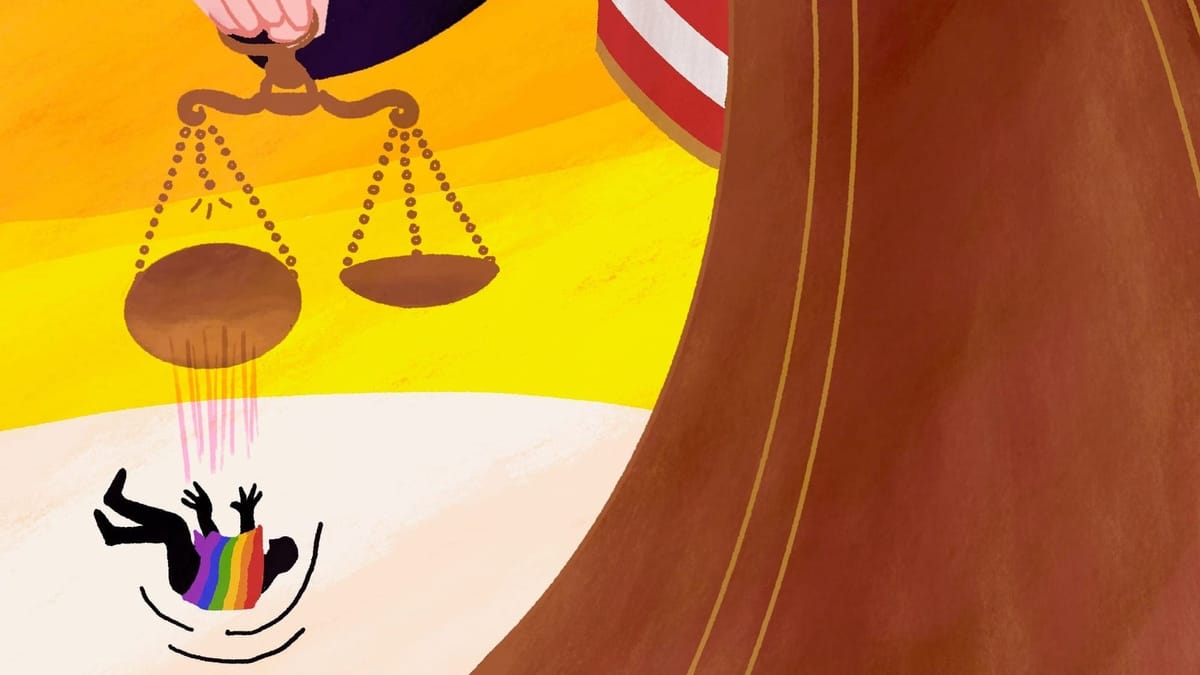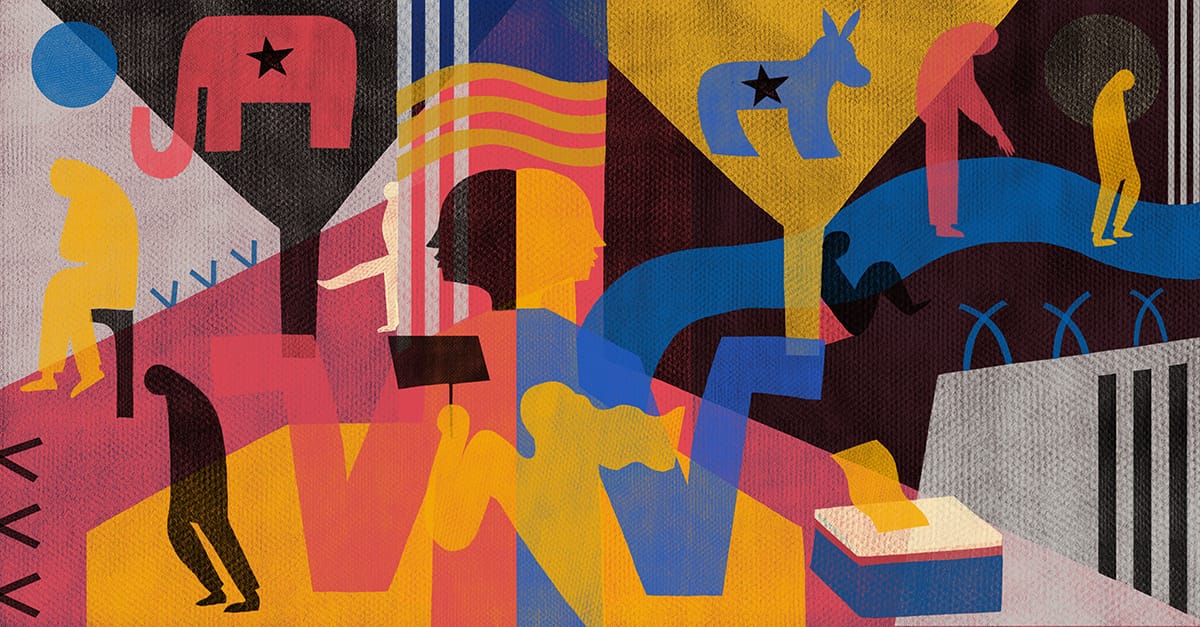A Brutal Attack. A Failed Prosecution. And a Warning for Queer Arizonans.
A gay man was knifed after allegedly being called a homophobic slur. The Maricopa County Attorney said it’s not enough to charge his attacker.
With the state's history of unequal justice in death sentence rulings, the co-chair of the legislative LGBTQ+ caucus wants to let voters decide if the death penalty should remain.

As Attorney General Kris Mayes lifts the state’s halt on prison executions, LGBTQ+ Caucus Co-chair Rep. Patty Contreras has contemporaneously reintroduced a 2022 measure to ban the punishment.
The bill and Mayes’ decision to resume executions also coincide with news reports that the drug used for lethal injection in Arizona, pentobarbital salt, have been kept in a secret refrigerator inside the department of corrections, unmarked and possibly expired, according to reporting from the AZ Mirror.
And earlier this month, former U.S. Attorney General Merrick Garland withdrew the lethal drug from its execution protocol, saying it would cause “unnecessary pain and suffering.”
Arizona still remains one of 27 states in the U.S. that continues to hand down and carry out the death sentence. The state has executed a total of 40 people since the revision of the Death Penalty Statute, with 111 prisoners still currently serving on Death Row.
Both co-chairs of the LGBTQ+ caucus, Phoenix Reps. Contreras and Minority Leader Oscar De Los Santos, have sponsored the bill to end the state’s death penalty.
The bill, HCR2001, if passed by the House and Senate this session, would give Arizonans the chance to vote on the measure in 2026 to amend the state constitution and repeal a punishment Contreras believes should be left in the past.
“It is important to give Arizona voters the chance to decide whether Arizona should repeal the death penalty. If capital punishment were repealed, individuals currently on death row would remain in prison serving a natural life sentence,” said Executive Director Lindsay Herf with the Arizona Justice Project in an emailed statement. Citing the exonerations of individuals sentenced to death, Herf says it is a part of a number of reasons that the public’s perception of the death penalty has been greatly impacted.

Since the first recorded execution of Dolores Moore in 1865, Arizona’s history with capital punishment has been controversial.
Following the American Bar Association’s death penalty assessment on Arizona that highlighted its system’s flaws and how to address them in 2006, a Department of Justice investigation revealed that the state had illegally obtained barbiturates from a foreign source in 2011, the heavily criticized construction and use of $2,000 worth of cyanide in a refurbished gas chamber in 2021, and the additional exoneration of almost 200 death row inmates since 1973, the public condemnation has fueled the argument for those in-favor of pausing or repealing the death penalty.
“Increasingly, death row inmates have had their cases overturned – nearly 200 since 1973 – because of improved investigative technology like DNA analysis,” Rep. Contreras said in a press release last month. “Still, other states have executed people despite serious doubts about their guilt. Arizona should not go back down that road.”
Local criminal defense and civil rights lawyer Chris Doran said that there’s been a lot of debate on the morality of the death penalty; people who believe in an eye-for-an-eye punishment versus people who don’t believe we should be executing anybody under any circumstance: “From a practical standpoint, [executions] cost a lot of money to taxpayers, because it's not like somebody gets sentenced to death and they are killed like the next week,” Doran said.
In 2023, when Gov. Katie Hobbs enacted Executive Order 5 following the three botched executions of prisoners Clarence Dixon, Frank Atwood, and Murray Hooper. The Governor declared that an independent review was necessary for oversight of the Arizona Department of Corrections, Rehabilitation, & Reentry (ADCRR) which oversees state executions.
Dixon’s, Atwood’s, and Hooper’s executions had been regarded by reporters and defense attorneys as “visibly problematic” as prison personnel failed to set an intravenous line for the pentobarbital, a drug typically used in state executions, resulting in slow, painful deaths for people on death row.
Now, citing the Independent Review Commissioner’s preliminary draft of the final report on Arizona’s death penalty, Rep. Contreras has put forth HCR2001.
“People who commit heinous crimes should be locked away, and victims of crime and their families deserve justice. But the death penalty is not the answer,” Rep. Contreras said in a press release last month. “It's disheartening to see that Arizona is re-starting executions when there is no evidence that the death penalty deters crime, and it is disproportionately applied to defendants who are people of color, people who are economically disadvantaged and especially those with intellectual disabilities.”
After the 1991 shooting of Bryan and Lauren Bernstein, LOOKOUT and The Appeal reported on the story of Gregory Dickens, a gay man sentenced to death for driving the man charged for the shooting, Travis Amaral. Believed to be harshly sentenced to death by Judge Tom C. Cole, a man with bigoted beliefs of homosexual men, Dickens’ story highlighted the lack of oversight and lax rules that allow sitting judges to discriminate against members of marginalized communities, specifically those part of the LGBTQ+ community.
Similarities present themself in various cases across the country. Last year, The Appeal released an additional analysis that highlighted over two dozen cases in which an LGBTQ+ defendant faced the death sentence with evidence of anti-LGBTQ+ discrimination heavily influencing the outcomes.

In the 1994 Oklahoma prosecution of Jay Neill, sentenced to death alongside his co-defendant and boyfriend Robert Grady Johnson for the murders of three women during a bank robbery they committed, the state prosecution asked the jury to take into account the defendants’ sexual orientation. During the Court of Appeal’s decision to uphold Neill’s death sentence, the presiding Judge Carlos F. Lucero released a statement during his dissent that he could not sanction a death sentence based “on who the defendant is rather than what he has done.”

Death Penalty Alternatives for Arizona, an abolitionist nonprofit group based in Mesa, report that 43% of total executions were Black, Indigenous, or People of Color since 1976. In Arizona, the organization reported, just under half of all documented executions (1910-2022) were BIPOC individuals, despite making up much smaller percentages of the overall state population, according to the US Census Bureau.
In a letter to former Republican Gov. Doug Ducey in 2018 asking to end executions, the ACLU wrote that Black people and people of color are also disproportionately victims of wrongful conviction, generally, and are sentenced to death at higher rates than white defendants.
That hasn't changed, with justice still being unequally distributed across Arizona, according to a 2020 report by the ACLU that found racial bias in prosecutions, and a 2024 Department of Justice report that found police targeted people of color. Those reports, along with past bipartisanship on criminal justice issues, give good reason for Contreras to think that the bill could be moved with the help of Arizona Republicans.
But as of now, the eight additional sponsors on the bill are all Democrats, and the Contreras would still need to sway a handful of Republicans in both the House and Senate to sign on in order to get the bare minimum required to pass.
Rep. Contreras and the Arizona Department of Corrections, Rehabilitation, & Re-entry (ADCRR) did not immediately respond to requests for comment.
LOOKOUT Publications (EIN: 92-3129757) is a federally recognized nonprofit news outlet.
All mailed inquiries can be sent to 221 E. Indianola Ave, Phoenix, AZ 85012.